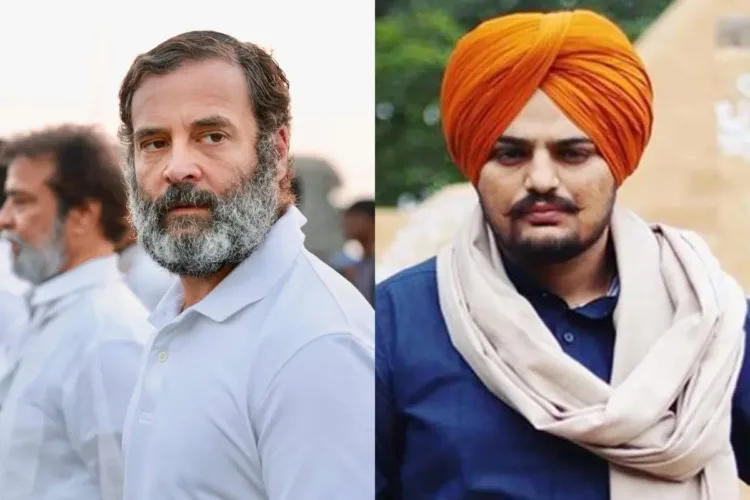Exit polls for the 2024 Lok Sabha elections predict a landslide victory for the ruling BJP, with most agencies forecasting a complete failure for the opposition I.N.D.I Alliance, estimating their seat count between 130 and 150 in best and worst-case scenarios. Despite these predictions, the alliance claims they will secure a “magical figure” of 295 seats, dismissing the polls as fake and baseless. The Congress party has announced that none of their spokespersons will participate in exit poll debates, labelling them as TRP-driven spectacles.
On May 31, the Congress decided to abstain from any Lok Sabha exit poll debates on television, emphasising their reluctance to engage in speculative discussions merely for TRP. Congress spokesperson and media department chairperson Pawan Khera stated that the voters have cast their votes, and the results will be announced on June 4. “Prior to that, we do not see any reason to indulge in speculation and a slugfest for TRP,” he said in a statement shared on X. Later the same day, Congress spokesperson’s did participate in the debates.
When asked about his analysis of the alliance’s performance, Rahul Gandhi dismissed the exit polls, calling them “Modi media polls and fantasy polls.” He referred to a song by the late singer Sidhu Moosewala, quipping, “Have you heard Sidhu Moosewala’s song 295?” and then said, “We will get 295 seats.”
Sidhu Moosewala was an Indian rapper, politician, and activist. He released three albums, “Moosetape,” published in 2021. The album featured the song “295,” which has gained significant attention and analysis since Moosewala’s death on May 29, 2022.
Let’s delve into the meaning behind Moosewala’s song “295” and how Rahul Gandhi might be using it to send a hidden message with his prediction of 295 seats for the alliance. This reference is intriguing on many levels.
Section 295 of the Indian Penal Code addresses acts intended to insult religious beliefs. It grants the government the authority to prosecute individuals who, in their view, fail to show adequate respect for the national religion, particularly in ways supported by the government.
Sidhu Moosewala had been vocal in his criticism of how religion is managed in India. At one point, he was accused of disrespect when he mentioned Mai Bhago, a legendary 17th-century Sikh woman warrior.
In his song “295,” Moosewala repeatedly sings, “If you speak the truth then you will get 295,” implying that expressing one’s ideas can lead to imprisonment. The lyrics further state, “Nit Controversy Create Milugi, Dharma De Naam Te Debate Milugi, Sach Bolega Taan Milu 295, Je Karega Tarakki Putt Hate Milugi,” which translates to: “You’ll get a bag full of controversy every day, You will get debates in the name of religion, If you speak the truth then you will get 295, And if you succeed, you will get hatred.”
Rahul Gandhi’s reference to this particular song while predicting their seat count raises several questions. Is he subtly suggesting that speaking the truth, as the alliance claims to be doing, will lead to repercussions from the government? Is there a deeper message about the alliance’s actions? Could this be a call to action or a sign of impending unrest?
The answers to these questions remain uncertain and lie in the future.
Notably, on June 2, the BJP filed a complaint with the Election Commission of India (ECI), accusing the Opposition parties of making unfounded claims to undermine the electoral process. The BJP stated that the Opposition and affiliated civil societies have systematically targeted the judiciary and ECI, aiming to discredit these institutions and the election process. They claimed that if court verdicts do not favour them, the Opposition then targets the judicial outcomes.
The BJP described these actions as a “sinister attempt” by civil societies fronting for the Opposition to undermine the electoral process. They expressed concern over these efforts and felt obligated to inform the ECI and the public to expose what they termed as “criminal conspiracies.”
The BJP also accused the Opposition of targeting the media and spreading false narratives to discredit the electoral process, highlighting their selective criticism of the media and ECI depending on election outcomes.
They mentioned a “Delhi Resolution,” allegedly adopted by opposition-instigated individuals, which outlines actions to discredit the election process and create unrest, including mass letter-writing campaigns and preparing for peaceful protests if the election process is perceived to violate the Constitution.
The BJP urged the ECI to ensure that all officials involved in the counting process adhere strictly to the prescribed protocols to avoid any deviations.


















Comments